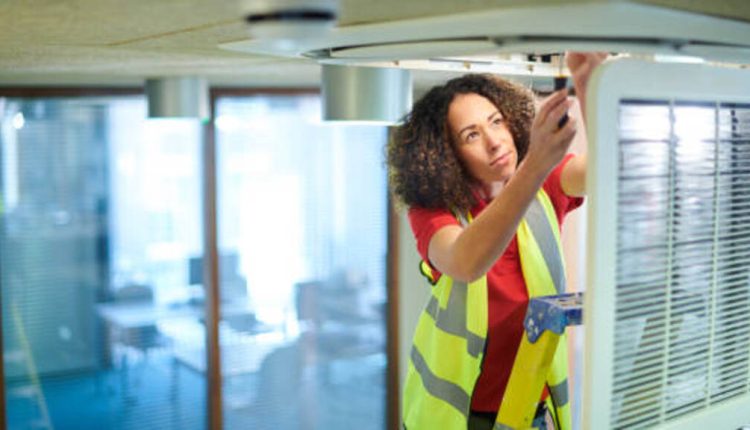Renovation refers to altering an existing building to restore or alter it in some way, including repairs, installing new flooring, and painting or finishing walls, as well as upgrading its systems to meet modern ADA, safety, and energy codes. The Amazing fact about commercial glazing relacement.
Renovation projects may be completed while still in use, presenting challenges such as communication between owners and contractors and providing break areas to mitigate these difficulties. Ensure there is an open dialogue between them and offer places for them to take breaks to help manage this process efficiently.
Identifying the Problems
Building renovation begins by identifying potential issues, from environmental concerns to safety hazards. Old buildings often contain hazardous materials like lead paint or asbestos, which must be safely handled during renovations. Working with a construction team that understands applicable laws and regulations will help ensure safe disposal.
Water damage is another frequent hazard during renovation projects, often resulting from leaky roofs or broken pipes, and may require reinforcement work to be fixed effectively.
Renovation projects often cause environmental harm. According to research, renovations account for an overwhelming portion of global energy consumption and emissions – making renovations essential in decreasing these metrics for existing buildings.
Several countries have conducted extensive research on building renovation to meet this objective. This included investigating cutting-edge technologies, methods, stakeholder dynamics, laws, and regulations. As a result of this work, comprehensive approaches for renovation have been devised across these nations.
However, there remain several challenges that must be met head-on. One obstacle is financing options for renovation projects, especially smaller ones, which can present considerable difficulty. By teaming with qualified construction professionals, anticipating and avoiding these difficulties should be more accessible.
Creating a Budget
Establishing a budget is vital when undertaking any renovation project, protecting against overspending while keeping all aspects in order – from fixtures to flooring. A well-thought-out budget also helps alleviate stress during renovation as the client will know precisely what they can afford and cannot.
Start by compiling a list of projects, then research the costs of all labor and materials involved. This may require time and effort but will provide an accurate budget snapshot. Once you have an estimated cost figure, shop for the best prices on materials and labor services.
Consider that renovation projects often necessitate replacing existing systems, including plumbing, electrical, and HVAC units. While replacing them may add to overall costs significantly, updating them could increase safety and efficiency – potentially justifying any extra spending.
Establish a contingency fund for unexpected renovating expenses, typically 10%-20% of the total renovation cost. This is especially essential as renovation projects often present more surprises than new builds; many unplanned issues could surface.
Homezada effectively tracks renovation costs as they fluctuate during a project and helps you maintain an accurate budget and stay within it. Furthermore, using Homezada will enable you to get real quotes, create a budget, bookmark ideas, and record actual costs easily for tax deduction purposes. Moreover, communication with contractors regularly and asking them for suggestions on ways to cut expenses (for instance, upcycling old carpets or wooden floors can often be much cheaper).
Choosing a Contractor
Homeowners need a reliable contractor that provides high-quality service at a reasonable cost, which can be challenging. Whether a renovation company uses top-of-the-line materials or subpar alternatives may require asking them for references from previous customers or asking for portfolios of completed projects as evidence of past performance and testimonials or references from those familiar with them.
Homeowners should take time to carefully research contractors and their licensing credentials as well as their insurance. It would be wise to aim for two or three licensed, reliable, and trustworthy contractors to make an ideal fit for their remodeling needs.
After narrowing their selection, homeowners should conduct interviews and reviews of candidates, including walkthroughs of the space to be renovated. This allows homeowners to assess a contractor and see if they can communicate efficiently during construction.
At an interview, homeowners must ask contractors about their experience with renovation projects, the quality of their work, and any pictures of completed projects they provide. Inquire if any warranty is offered; some contracts only last as long as the company remains operational; if bankruptcy arises, it could void such warranties entirely.
Getting Started
Renovation projects are an effective way to increase efficiency and productivity, but any renovation must be feasible. This includes ensuring its goals can be reached within its allocated space while any potential issues can be addressed beforehand. It is also wise to plan how long the renovation will last before beginning work on any particular renovation.
Before embarking on any renovation, it is a wise idea to consult an interior designer. A professional can help narrow down your preferences and craft the desired look through drawings, mood boards, and samples; additionally, they will assist in setting and sticking to a budget to keep costs under control.
As unexpected expenses may arise during renovation, a contingency fund must be set up. Discussing the timeline and deadline with the contractor ensures your renovation will be finished on schedule while any problems are quickly addressed.
As part of the renovation process, it may be necessary to clear out areas of a building and remove furniture and fixtures that could be damaged during construction. Furthermore, existing plumbing, electrical, and ventilation systems must meet health and safety regulations; therefore, it would be wise to arrange inspections from local authorities before finishing renovation work. This will ensure that staff and clients occupying renovated spaces receive safety assurance before returning to regular service.
Read Also: News From Nigeria


